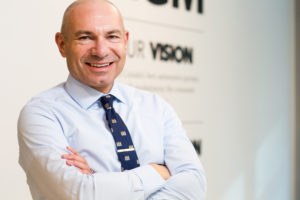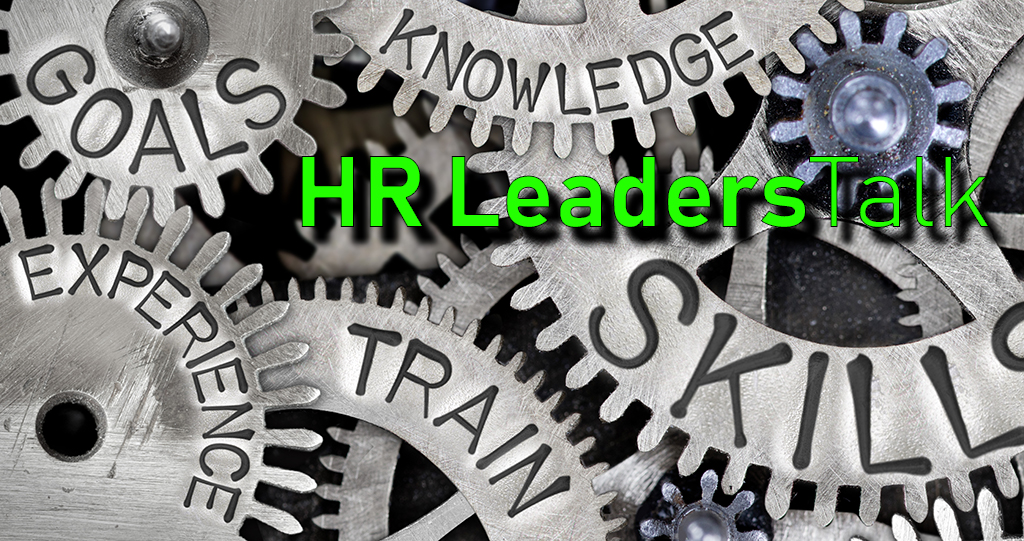HR LeadersTalk: Jim Steffler and the HR Revolution
In every issue of PeopleTalk magazine we try to speak with an HR leader to get their thoughts on various HR related topics and pick their brain for some advice they may have for the next generation of HR stars who are just starting out in the profession.
In the Spring issue, Drew Railton, CPHR caught up with Jim Steffler.
With more than 20 years of senior management experience within the insurance and financial services industry, including both the private and not-for-profit sector, Jim Steffler is currently the executive vice president, people for LMG Finacial Services Inc.
Here is what Jim had to say.

Jim Steffler
Why did you choose HR or how did it choose you?
I would like to think we “found” each other, but admittedly, I was the aggressor. It was my passion for talent development that had me pursue the ideal. It was 2010 and I was in an operations role for LGM, a small-midsize, more small than midsize, enterprise at the time. As I observed the tremendous potential of this market-leading company, I saw the opportunity to drive performance by helping to shape the people culture. HR was off-the-sides-of-desks and if we were to succeed, there were critical internal considerations, including a full-time focus on people strategy alignment with business strategy. In short, we had to get out in front of the growth and fortunately, our founder and CEO, a hugely employee-centric leader, was open to giving me a try at HR leadership. We have since quadrupled in size and it’s been a most enjoyable journey.
What was the breakout project or thing you did to really accelerate your career?
There a multiple projects worthy of mention because HR was underdeveloped, but not necessarily undeveloped, so I will proudly speak to the development of a compensation structure. A key component of our Employer Value Proposition (EVP) is to attract and retain the talent needed to grow. We established (and modernized) the way we designed compensation and made compensation decisions from a business perspective starting with messaging out our pay philosophy.
We then had to show the organization our market-based approach to gathering credible data via closed surveys, removing inequities, and building and socializing career bands, but more importantly, conveying fairness with payouts that were externally competitive and internally equitable. This was more than just a compensation project at LGM; it was a cultural shift to pay transparency and trust. A new relationship with the employer brand happily emerged.
What advice do you wish someone had given you earlier in your career?
There was no shortage of advice over the years, both the good and the regrettable. Notwithstanding the latter, I continue to seek out advice. We function in a multigenerational workforce today, so there is much to gain from asking for help. I only wish someone had advised me sooner that HR is indeed strategic and deserved my attention as a career choice. I feel like I missed out on the early days of HR and its evolution. Although, being part of the revolution is great fun.
What do you think is the greatest emerging opportunity/challenge for HR professionals?
HR has a vital role to play in driving the employee experience, and not to confuse this with employee engagement because it’s falling short of its goal in most organizations and in many countries
With social media and technology advancements, what is your prediction for the future of HR as a function?
There are many trends and earlier in my career I made the mistake of wanting to jump on every band wagon or capture shiny new objects. That is fraught with danger if not tied to the business, revenue projections or cost efficiencies. That said, there are advancements we can’t ignore. I read an article by Tom Starner in HR Executive recently and I agree with him that there needs to be a deeper connection between the HR lead and the digital lead. By bringing these two together we can not only achieve a new digital workplace for employees to marvel in and management to relish for accessing rich data, but also will have a positive cultural impact on the state of work and continuous learning.
Any final advice for areas or hot skills you would develop as a young professional?
To demonstrate even greater resiliency. The business landscape is changing right before our eyes with disruptors popping up everywhere. For young professionals to thrive, they will need the capacity to recover quickly if to stay in control. Also, doing the right thing wins every time.
Jim Steffler over has over 20 years of broad and progressive senior management experience within the insurance and financial services industry including both the private and not-for-profit sector. Currently executive vice president of people for LGM Financial Services (formerly known as Omni Companies), Jim is recognized for building effective relationships with partners and creating high performing cross-functional teams that deliver client solutions and inspire growth. LGM Financial Services is a leading supplier of branded warranty, finance and insurance products to distinguished Canadian automotive manufacturers. It is also a rewarding place work, recognized by AON Hewitt as a 2018 Gold Level Aon Best Small and Medium Employer in Canada.







